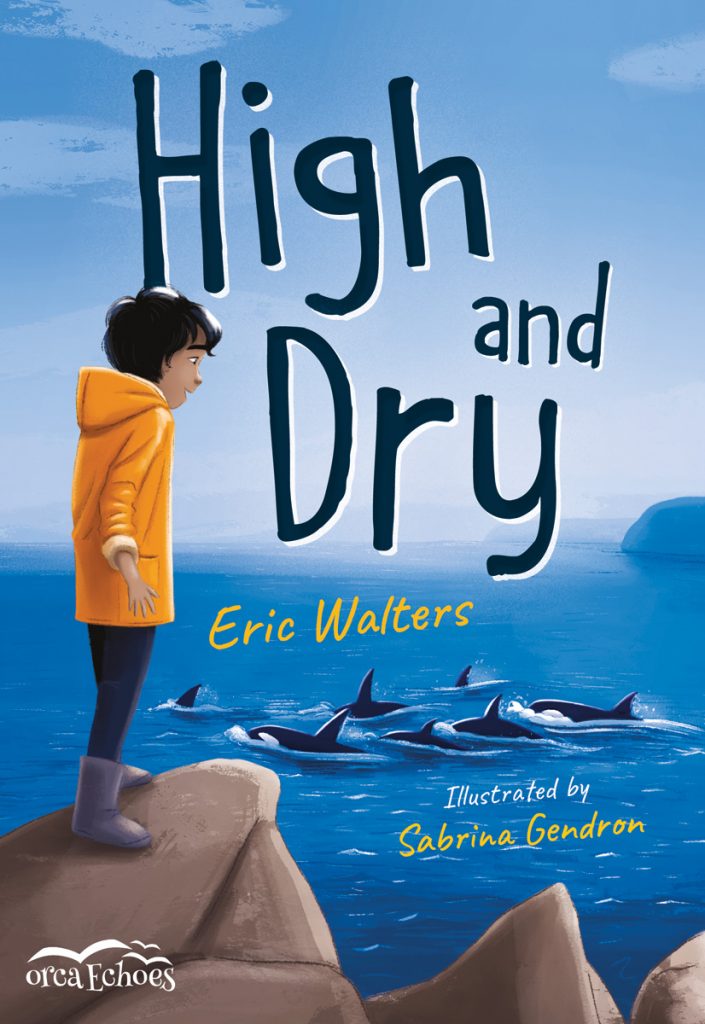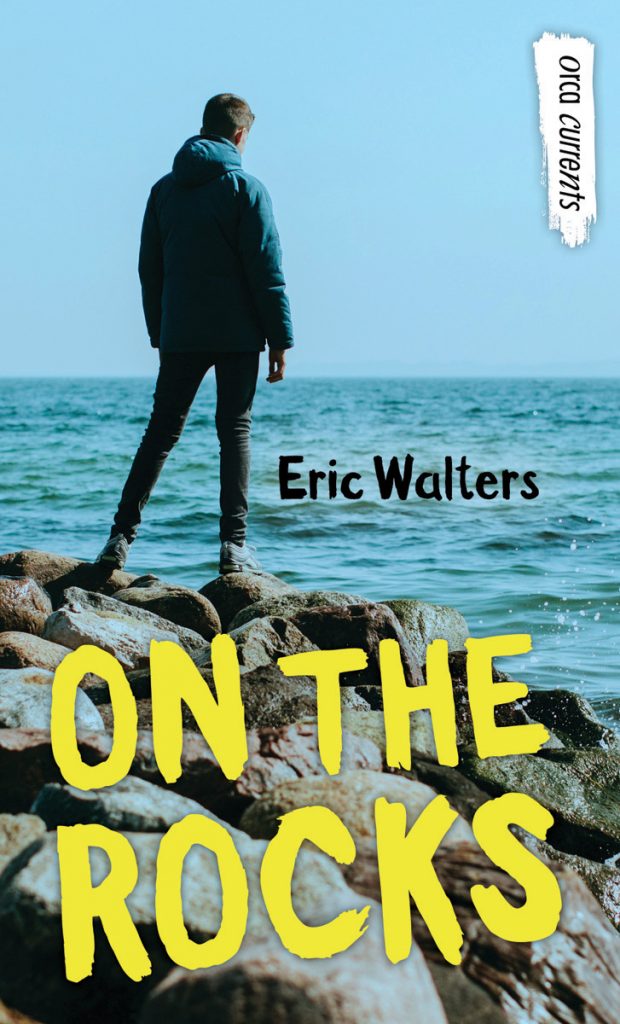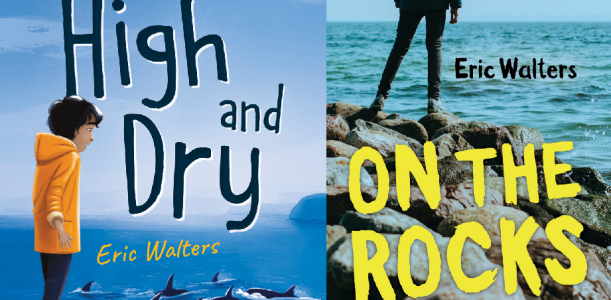
High and Dry is an illustrated early chapter book, and On the Rocks is a high-interest novel for middle readers. Both books tell the story of a boy named Dylan and his grandfather, who discover a stranded orca on the beach and have to work together to try to keep the whale alive. In this Orca Blog guest post, author Eric Walters explains his inspiration for writing the same plot for two different age groups, and how that changed the story from one book to the other.
At the end of this post, find classroom activities and questions provided by Eric Walters for both High and Dry and On the Rocks.
* * *

This story came from a real-life event—the stranding of a juvenile orca on the rocks near the isolated Hartley Bay, BC, in July 2015. Local residents worked together to help keep the whale covered, wet and safe until the tide returned, then set the whale free to rejoin its family. I love a happy ending.
There was an obvious story here but the question, from my perspective as a writer, was how to take this real event and create a compelling narrative around it. I had two very distinct ideas which were targeted at two very different demographics. I couldn’t decide whether this was a more straightforward first chapter book for younger readers about rescuing a whale or a more complex story for older readers about family, separation, anger and, hopefully, resolution.
It seemed only natural that a story about a stranded orca should be a book published by Orca. I had discussions with Andrew Wooldridge, Orca’s publisher, about which direction I should pursue. In the end it was decided that there was merit in trying to write the same plot in two very different ways. Trying something new—making the plots separate but in some way linked—was an exciting challenge.
High and Dry and On the Rocks share many things in common. Each is set on an isolated island off the BC coast. Each plot evolves around a stranded orca and the efforts of a grandson and grandfather to save the whale. But that’s where the similarities end.
High and Dry is a first chapter book written for students in grades 2 and 3. The relationship between the grandson and his grandfather is based around an ongoing positive relationship. They are isolated, as the boy’s parents leave to travel to the city for a show of their art work and a big storm is closing in. While they don’t see each other very often, the grandson and grandfather have a positive, caring relationship and have always enjoyed time together. The grandfather has lots of surprises and adventures waiting to share with his grandson.

On The Rocks is meant for an older audience: grades 4 to 8. It has the same storm and driving precipitating factor of the stranded whale, but the reason for the grandson’s visit and the relationship between him and his grandfather are so different. This story starts with a different grandson and a different grandfather, two people who are almost strangers. They have not seen each other for years. With his mother going into rehab for an addiction, the grandson has no place else to go. He is a reluctant “guest” who doesn’t wish to be there, but has no options left. There are years of non-contact, resentment, misunderstanding and anger that form the basis of their troubled relationship. The discovery of the stranded orca on the rocks forces the two of them to work together in ways that they wouldn’t have foreseen and to examine and confront their past.
As a teacher I always loved finding my students stories that they would enjoy. The best book is the one that meets their interests, that they find compelling and want to read. You have to meet them “where they are” to get them to read. However, meeting them where they are doesn’t mean leaving them where you found them.
There is also the responsibility of continually moving students forward, finding those same books that they like but in a format that will challenge their abilities and create more emotional maturity and literacy skills. High and Dry is a great story for younger readers. It is also a story that can set the stage for the more difficult book—both in reading level and emotionally—that is found in On The Rocks. They will have familiarity with the situation and science of the plot but will be able to explore the more complex themes of the second. It’s my hope that many young readers will follow the trail from one book to the next.
Actually, come to think of it, wouldn’t this make an interesting picture book? I’d better give Andrew another call.
* * *
Questions & Activities for High and Dry:
- As a class, look at news about the actual whale stranding online, and look at videos and articles that were taken/written at that time (example). What would you do if you found a whale stranded on a beach?
- How would you describe the relationship between grandson and grandfather in High and Dry?
- Take the settings you “see” in your head and create a piece of art.
Questions & Activities for On the Rocks:
- Go and find news about the actual whale stranding online and look at videos and articles that were taken/written at that time (example). Does the book accurately reflect the science of whales and stranding situations?
- How would you describe the relationship between grandson and grandfather in On The Rocks?
- If you’ve read both High and Dry and On the Rocks, (i) what are the biggest differences in the stories and (ii) what are the biggest similarities?
- What happens next? Write the next chapter in the book.
- There is controversy about whether orcas should be kept in captivity. Research and write a persuasive piece outlining your position.
* * *

Eric Walters began writing as a way to get his fifth-grade students interested in reading and writing. A Member of the Order of Canada, he has now published more than 100 novels and picture books. He is a tireless presenter, speaking to over 100,000 students per year in schools across the country. He lives in Guelph, Ontario.


